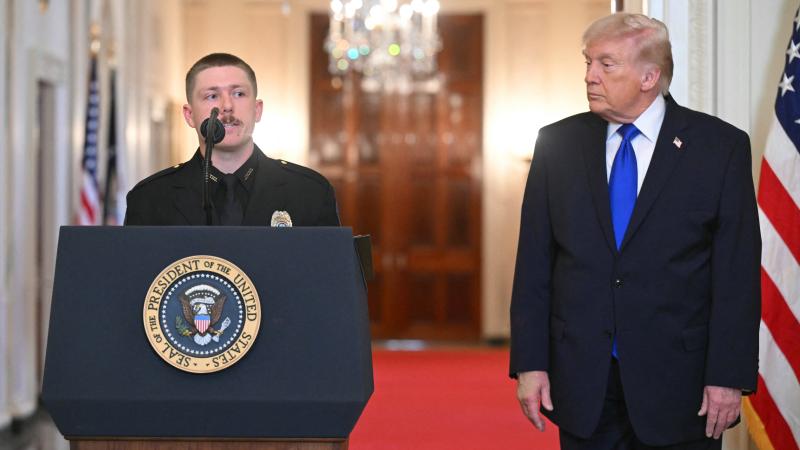Ben Carson launching new think tank to reconcile divided Americans around 'cornerstone values'
In the hope of helping Americans to reconcile around the nation's "cornerstone values and principles," the former Hud secretary has launched a new think tank, the American Cornerstone Institute.
America's polarized society is like a married couple on the brink of divorce, Dr. Ben Carson believes.
"It's like a marriage, you know, people, they love each other," Carson said in an interview on the John Solomon Reports podcast. "They can't stand to be away from each other. But what about before they get divorced? They stopped talking, and next thing you know, their spouse is the devil incarnate ... and that's what's happened to us as a society, and we got to start talking to each other. "
The former Trump administration HUD secretary hasn't abandoned hope for national reconciliation — if only we can remember the ideals that brought us together in the first place and start talking to each other again.
"[We got to start talking to each other, said Carson. "We can work this out. We are not each other's enemies."
In the hope of helping Americans to reconcile around the nation's "cornerstone values and principles," Carson has launched a new think tank, the American Cornerstone Institute.
The nation needs to recover "things like our faith, things like liberty, things like community, things like life, foundational pillars," Carson said, "and watching those things melt away in our society is not something that I could do ... we can't just idly sit by and let that happen. There are common-sense principles that need to be applied to the problems that we are facing right now. And if we allow common sense and decency to once again reign supreme in our country, we will see the fruits of that very, very quickly."
For Carson, the divide in American society begins with the education system — a reality that has been exposed as never before as a result of the distance learning to which school systems across the country have resorted over the past year as a result of the COVID-19 pandemic.
Through the window into public education that digital, at-home learning has afforded to parents, "we've been able to look into some of those classrooms, and see the kind of propaganda that's being put forth," Carson said. "It starts at a very young age."
And it starts with the wholesale revision of the story American schools tell students about their nation's history.
"[W]hen you destroy the real history, you destroy people's identity," said Carson. "And when you destroy their identity, you destroy the basis of their belief system. And this is what we're finding ourselves in the midst of right now. We've got to change that."
The opening needed to begin that change, Carson suggests, lies in the decentralization and diversification of educational alternatives made possible by remote learning methods.
"One of the things that will help, ironically, is the fact that people can do distance learning now," said Carson. "And they can form groups. And they don't necessarily have to be stuck in a system where you just have people who are interested in propaganda and not in educating people. So we're going to find a way to utilize that, obviously, to our advantage."
















